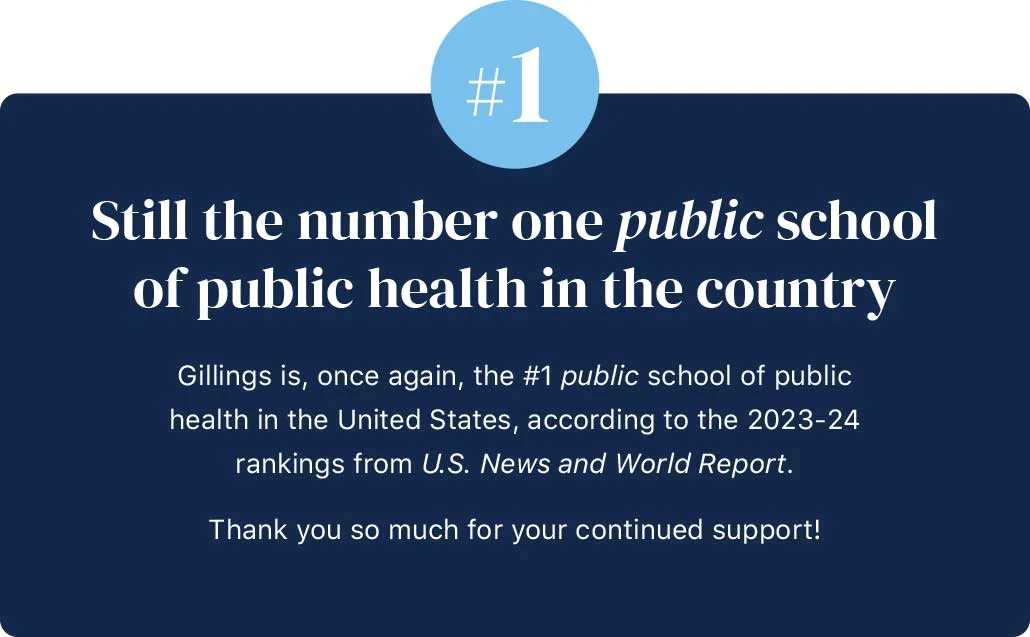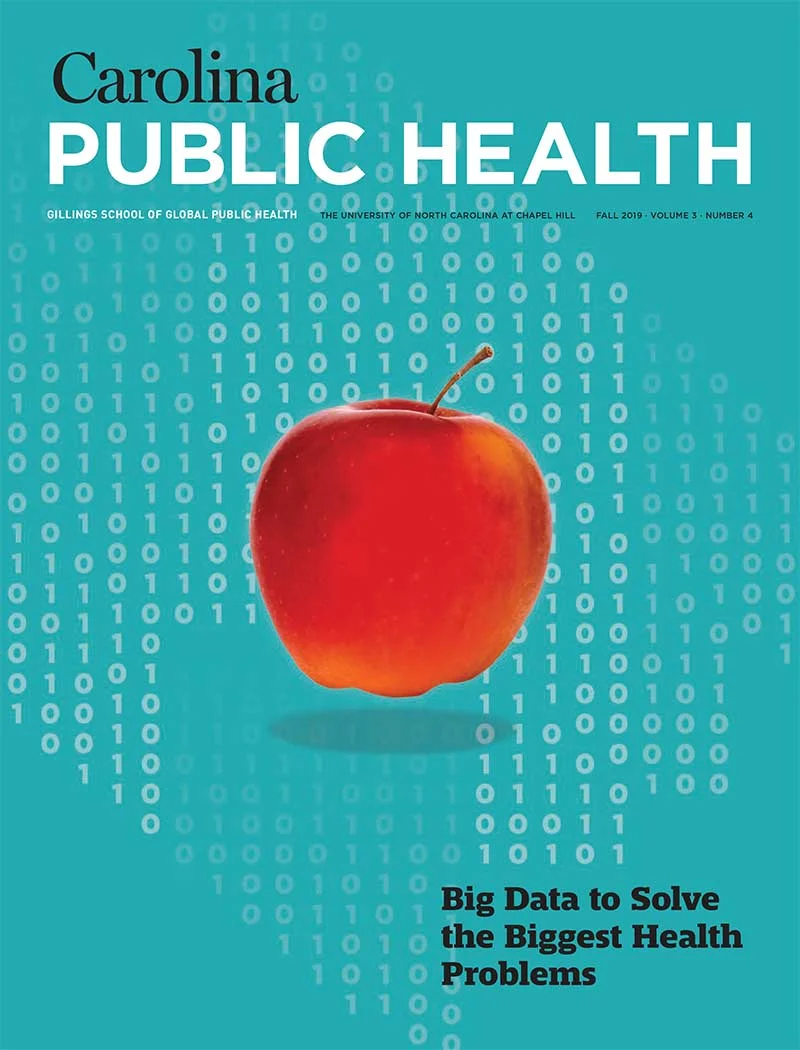Gillings researchers analyze multi-omics data to identify health-related genetic variants, addressing the underrepresentation of diverse populations in genomics studies.
A key part of precision public health is understanding genetic susceptibility to disease, so that prevention and treatment efforts can be tailored to individuals who are most susceptible.
Driving Health Solutions for Under-represented Groups: Too often, the populations who are most burdened by or vulnerable to diseases are underrepresented in research studies and underserved in access to care. We’re Gillings. We’re on it! Equity is a core Gillings value, and our faculty work to find ways to better deploy health-care data and resources to help those who need them most.
However, most genomics studies include data on populations of European descent. That makes it more difficult to understand how best to reduce chronic disease inequities among racial and ethnic groups. UNC Gillings School of Global Public Health faculty members are working to narrow this data gap. One of the strategies is to gain a better understanding of population groups that are more susceptible to chronic diseases yet are underrepresented in existing research.
Kari North, PhD, professor of epidemiology, analyzes multi-omics data to show how genomic underpinnings in diverse populations relate to health outcomes. She leads the UNC Department
of Epidemiology’s Cardiovascular Genetic Epidemiology Computational Laboratory, a collaborative, interdisciplinary research group focusing on family- and population-based genetic epidemiological research.
“We typically study European populations for things like heart disease, hypertension, and diabetes, but these populations are not the ones most burdened by those diseases,” North says. “Our goal is to ensure that genetic advancements are equitable for all populations. We need more diversity in research across all race and ethnic groups to alleviate health disparities.”
North and a team of researchers from institutions across the country recently analyzed health outcomes among nearly 50,000 racially and ethnically diverse populations and identified 65 new genetic associations — locations on a chromosome where genetic variants are found — many of which can be transferable to other groups that share components of genetic lineage, such as African ancestry, which can be found in African-Americans, Hispanics and Latinos.
One key finding from the group’s work is the association between lower HbA1c levels — which often is used as a marker for glucose control — and the gene for sickle cell anemia. While this association had been reported in African-American populations, researchers found that the sickle cell variant also is important in some Hispanic/Latino populations. The gene can affect the reliability of glucose test results and could lead to the misdiagnosis of Type 2 diabetes.
Making sure genetic studies reflect more diverse populations will help doctors and researchers better understand the genetic nuances that can influence the course of diseases and the effectiveness of treatment and prevention strategies.
“Diversity is such an important part of the picture,” says North, whose interest in health equity dates to her dissertation project on American Indians. “Precision medicine moving forward means you can personalize the treatment. But that can change based on what population you’re in — the individual lives in the context of the population.”
Since multi-omics involves the sequencing of vast amounts of biological data, a major challenge of working with multi-omics is figuring out how to integrate across big data, such as genomics, microbiomics, and metabolomics. North works with Danyu Lin, PhD, Dennis Gillings Distinguished Professor of biostatistics, who is a leader in statistical approaches to integrating these big data. “We’ve been laying the groundwork for these new approaches for some time,” Lin says.
“Fortunately, the technology and software have advanced rapidly. I am very excited about the promises of these new approaches to integrate across multiple types of omics data.”
North also uses multi-omics and integrative analysis to study obesity and other risk factors for chronic illnesses that disproportionately affect minority populations. Through genomics, identifying genetic variants linked to obesity is critical in developing targeted interventions to reduce the risk of obesity-related chronic illnesses such as hypertension, Type 2 diabetes, and heart disease. Metabolomics — the study of small molecules such as sugars, fatty acids, and lipids — helps researchers explore the molecular processes that can affect disease development and progression.
“Health equity, period, is the motivating factor of my work.”
Kari North, PhD
Professor of Epidemiology
“People who are obese are at much greater risk for cardiovascular risk factors across the board, but we don’t understand the molecular mechanisms by which obesity causes downstream disease,” North says. “What can the data tell us about why some populations are at increased risk of disease?”
In trying to get past correlation and look for causation, North and her team collaborate with Lin. “Everything I do is big data. We talk to Danyu about the problem, and he helps us operationalize those problems in terms of statistical algorithms,” North says. “He’s an amazing collaborator.”
The spark behind North’s data-driven search for answers is simple: “Health equity, period, is the motivating factor of my work,” she says.




